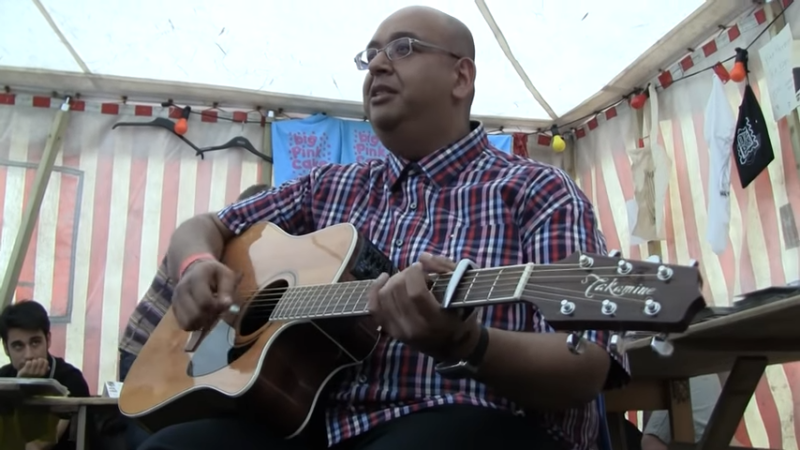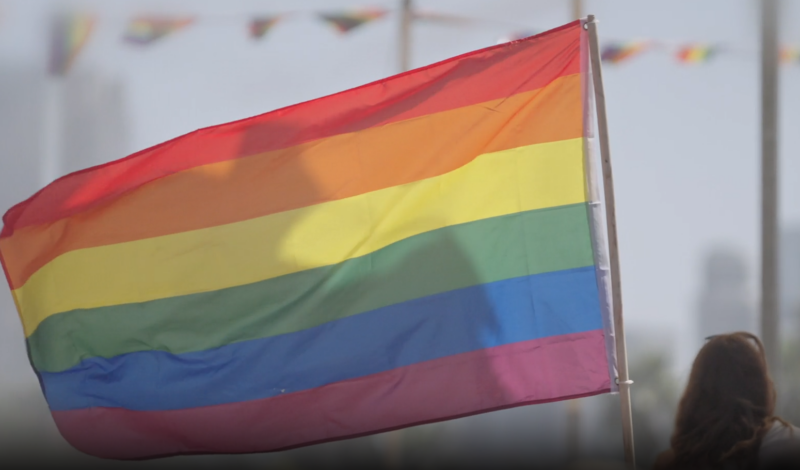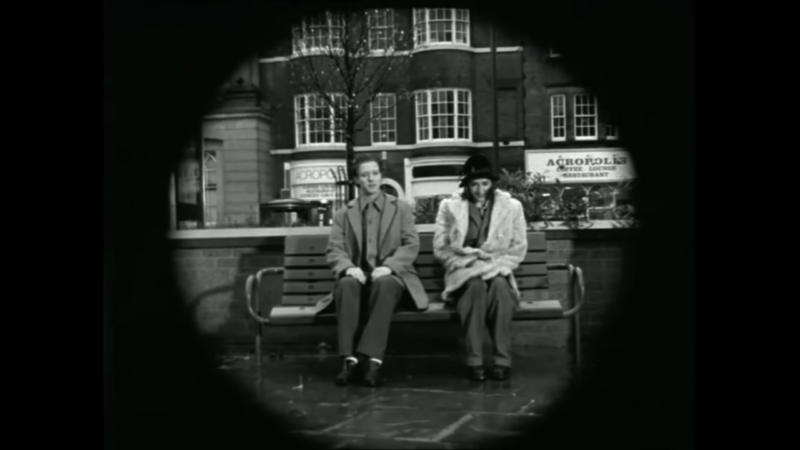In 1997, “Your Woman” by White Town, a project of Jyoti Prakash Mishra, resonated globally with its haunting melody and thought-provoking lyrics. This song, distinguished by its use of a 1930s sample, challenged traditional views on gender and love, making a significant mark in the music industry.
Through this article, we will explore the song’s creation, its profound themes, and its enduring impact on music and gender discourse, offering insights into the mind of Mishra and the song’s multifaceted legacy.
Key Takeaways
- “Your Woman” is a gender-reversal song by White Town, a musical project of Jyoti Prakash Mishra, that became a worldwide hit in 1997.
- The song features a 1930s sample, a blend of musical genres, and lyrics inspired by various sources, creating a unique and complex musical composition.
- The song explores themes such as gender roles and identity, unrequited love and relationships, and sociopolitical commentary, offering different perspectives and interpretations.
- The song has a lasting cultural impact and legacy, as it influenced the discourse on gender, inspired many covers and reinterpretations, and remains popular and relevant today.
The Making of “Your Woman”
In 1997, “Your Woman” emerged, rapidly ascending to global acclaim. This unexpected hit marked a significant milestone for Jyoti Prakash Mishra, the creative force behind White Town.
Mishra’s artistic journey, characterized by a blend of personal experiences and a unique vision, culminated in the formation of White Town, setting the stage for this iconic
Musical Composition
“Your Woman” stands out for its distinctive use of a sample from the 1930s, a choice that lent the song both a nostalgic and innovative feel. The sample is a muted trumpet line taken from a song called “My Woman” by Lew Stone and his Monseigneur Band, which Mishra heard on the soundtrack of a BBC TV series called Pennies From Heaven.
The original song was a love lament written by Bing Crosby, but Mishra transformed it into a gender-reversal breakup song with multiple perspectives and influences. The song also features elements of alternative pop, funk, electropop, and boom-bap, creating a unique sonic blend that appeals to a wide audience.
Lyrical Insights
Mishra reflects on the complexities of crafting “Your Woman,” saying,
Ummmm…well, that’s a toughie. When I wrote it, I was trying to write a pop song that had more than one perspective. Although it’s written in the first person the character behind that viewpoint isn’t necessarily what the casual listener would expect. I’d been reading a lot of Wilhelm Reich and Andrea Dworkin and they both influenced the lyrics in different ways. Yes, I’m a geek.
He elaborates on the song’s themes:
Being a member of an orthodox Trotskyist / Marxist movement (as I was for three years in the 80s).
Being a straight guy in love with a lesbian (ditto).
Being a gay guy in love with a straight man (not tried this one yet).
Being a straight girl in love with a lying, two-timing, fake-ass Marxist.
The hypocrisy that results when love and lust get mixed up with highbrow ideals 🙂
Mishra concludes with a personal note:
The last time I checked I was male. But as for gender….that’s another kettle of fish 🙂
Themes and Interpretations

One of the most striking features of the song is the metaphorical use of the word “woman” to refer to the singer’s object of desire. The singer, who is a man, repeatedly declares his love for a woman who does not reciprocate his feelings.
However, the woman in the song is not a literal female person, but a symbol of the singer’s idealized vision of love, freedom, and revolution. The woman in the song also represents the singer’s aspiration to transcend the conventional gender roles and norms that constrain his identity and expression.
The song also resonates with gender non-conforming and queer communities, who can relate to the singer’s struggle to find acceptance and fulfillment in a society that does not recognize or value their identities.
Unrequited Love and Relationships
Another theme of the song is the story of a rejected lover and the complexities of love. Mishra portrays himself as a passionate and devoted admirer of the woman, who is indifferent and distant to his advances.
He expresses his frustration, anger, and sadness at the woman’s rejection, but also his admiration, respect, and loyalty to her. Also, Mishra acknowledges that the woman does not belong to him, but to the world, and that he cannot force her to love him back.
“Your Woman” invites different interpretations of the relationship between the singer and the woman, depending on the gender and sexual orientation of the listener.
Sociopolitical Commentary
The third theme of the song is the connection to Mishra’s personal experiences with Trotskyism and Marxism, and the song’s critique of societal hypocrisy in love and political ideals. Mishra, the songwriter and lead singer of the band, was a former member of a Trotskyist organization, which advocated for a revolutionary and internationalist form of socialism.
“Your Woman” reflects Mishra’s disillusionment and disappointment with the Trotskyist movement, which he felt had betrayed its principles and become dogmatic and sectarian. The song also expresses Mishra’s criticism of the hypocrisy and corruption of the mainstream society, which claimed to uphold the values of democracy, equality, and human rights, but in reality, perpetuated the oppression and exploitation of the masses.
Cultural Impact and Legacy

The song had a significant influence on the public discourse on gender roles and identity, as it challenged the traditional and dominant norms and expectations of heterosexuality and masculinity. It provoked conversations and debates about the meaning and implications of the singer’s use of the word “woman” to refer to his object of desire, who was not a literal female person, but a symbol of his idealized vision of love, freedom, and revolution.
“Your Woman” also questioned the binary and heteronormative assumptions that underlie the dominant culture and offered a more fluid and inclusive perspective on gender and sexuality.
Reinterpretations and Covers
“Your Woman” has been reinterpreted and covered by many artists over the years, who have given their spin and perspective on the song’s themes and messages. One of the most notable covers was by MNEK, a British singer and songwriter, who released his version of the song in 2021.
MNEK’s cover was a queer love song, as he sang the lyrics from the point of view of a gay man who was in love with a straight man. It was praised for its emotional and vocal performance, as well as for its representation and visibility of queer love and identity.
MNEK’s version also had a significant impact on the LGBTQ+ community, as it celebrated and affirmed their experiences and feelings. Other notable covers and interpretations of the song include those by Princess Superstar, Tyler James, The Dynamics, and The White Panda.
Lasting Impact on Music and Society
“Your Woman” has had a lasting impact on music and society, as it has remained popular and relevant over the years. It has been featured in various media, such as films, television shows, video games, and commercials.
The song has also influenced subsequent music and societal views on gender, as it has inspired and influenced many artists and listeners to explore and express their own gender and sexual identities and experiences.
FAQ
Does the song “Your Woman” actually promote toxic masculinity?
While the song explores a man’s frustrated love for a woman who doesn’t reciprocate, it subverts expectations by using “woman” metaphorically. It criticizes societal pressures on men to conform to traditional masculinity, not promoting those pressures itself.
How did the song’s controversial use of the word “woman” affect its reception?
While some were offended by the seeming objectification of women, others praised the song’s ambiguity and open interpretation. It sparked discussions about gender fluidity and challenged audiences to see beyond binary definitions.
How does the song connect to White Town’s political views?
Mishra’s past with Trotskyism influences the song’s critique of hypocrisy and power dynamics. The lyrics criticize both political movements and societal norms that claim ideals but don’t live up to them.
Were there any major differences between the original sample and the song’s version?
Yes, “Your Woman” drastically transforms the source material. It shifts the original romantic lament into a melancholic electronic piece, highlighting how artists can reshape existing works to create new meanings.
How has the song’s message resonated with different communities?
Beyond its initial success, “Your Woman” has been embraced by LGBTQ+ audiences for its questioning of gender norms and representation of unrequited love outside heteronormative expectations.
What makes the song’s legacy so enduring?
By combining catchy music with thought-provoking lyrics, “Your Woman” continues to engage listeners across generations. It invites self-reflection, promotes open discussions about identity and societal inequalities, and remains a timeless example of artistic innovation.
Final Words
“Your Woman” is a song that defies easy categorization. It combines a vintage sample with modern sounds, it explores gender roles and identity from different angles, and it draws inspiration from diverse musical genres and cultures.
The song remains relevant today, as it resonates with listeners who question the stereotypes and expectations imposed by society. By creating a gender-reversal song that challenges the norms of both pop music and heteronormativity, White Town made a lasting contribution to the discourse on gender equality and diversity.

